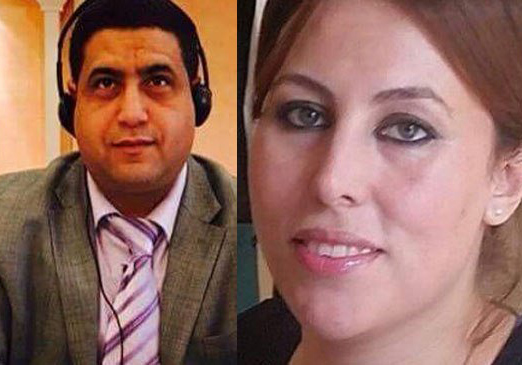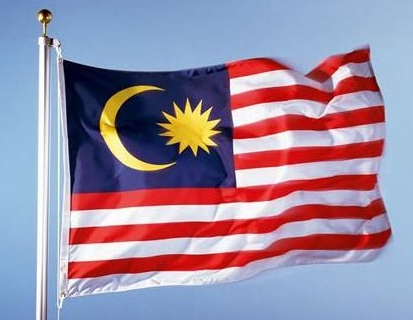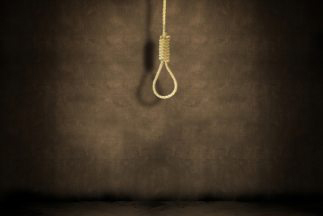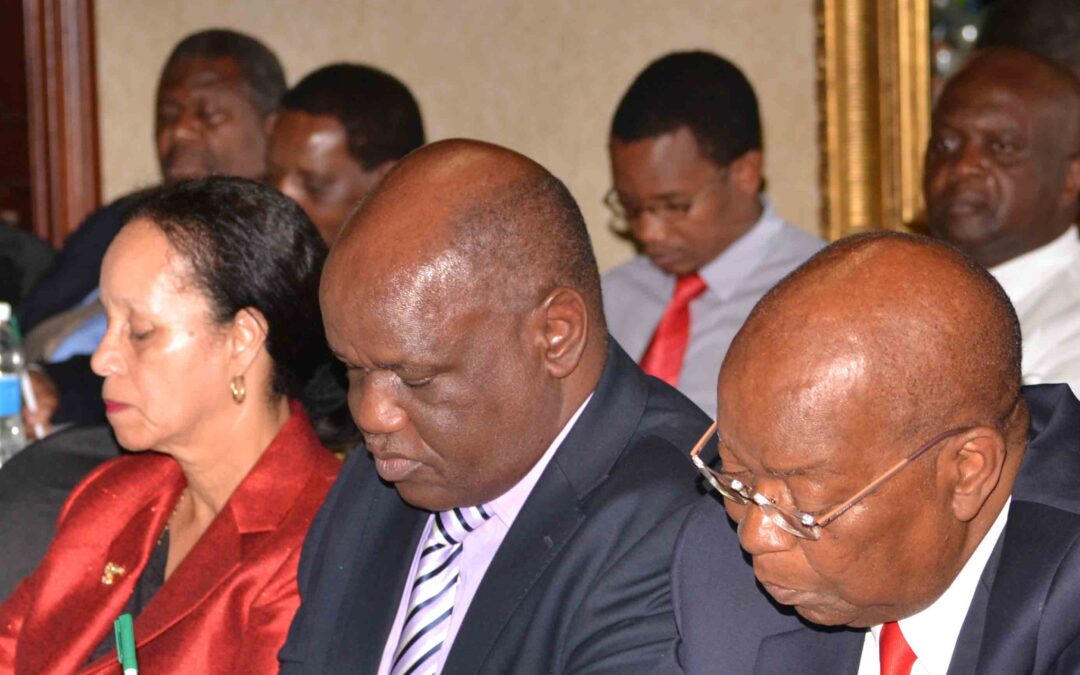
Dec 7, 2015 | News
The ICJ today called on the Moroccan authorities to put an immediate end to the disciplinary proceedings initiated against judges Amal Homani and Mohamed Al-Haini.
The two were referred to the High Judicial Council by the Minister of Justice on unfounded allegations of “violating the duty of discretion” and “expressing opinions of a political nature”.
The charges stem from social media comments and media articles written by the judges in which they criticized the government’s Draft Law No. 100.13 on the Conseil Supérieur du Pouvoir Judiciaire and the Draft Law No 106.13 on the Statute for Judges, including provisions that appear designed to maintain executive branch control of the judiciary and the career of judges.
“Instead of subjecting judges who are promoting the rule of law and judicial independence to unjustified and arbitrary disciplinary proceedings, the Moroccan authorities must comply with their obligations under international standards to guarantee, protect and preserve judicial independence,” said Said Benarbia, Director of the ICJ Middle East and North Africa Programme.
“The disciplinary proceedings against judges Amal Homani and Mohamed Al-Haini are clearly without foundation and must be immediately and unconditionally terminated,” he added.
International standards are clear: members of the judiciary are, like other citizens, entitled to freedom of expression, belief, association and assembly.
The exercise of these basic human rights in a manner that preserves the dignity of their office and the impartiality and independence of the judiciary should not constitute a disciplinary offence, the ICJ says.
The social media comments and media articles by judges Amal Homani and Mohamed Al-Haini were clearly within the scope of their rights to freedom of expression, the Geneva-based organization adds.
Under the current legal framework, in particular Law No.1-74-467 of 1974 on the Statute for Judges, the Ministry of Justice has comprehensive and effective control over the entire judiciary, including the High Judicial Council, the career of judges and judicial administration.
Indeed, under the current framework, the Minister of Justice is the Vice-President of the High Judicial Council.
As such the impartiality and fairness of any disciplinary hearings initiated by the Minister of Justice based on statements perceived to criticize the executive branch, must be called into question, the ICJ says.
While provisions of the 2011 Constitution relating to the judiciary constitute an important step towards ending the executive’s control over the judiciary, Moroccan professional associations of judges and civil society organizations have expressed concern that the draft laws perpetuate such control as well as executive interference in judicial matters.
The ICJ has previously called on the Moroccan authorities to revise the two flawed draft laws to ensure their full compliance with international law and standards on judicial independence.
“The Moroccan authorities must end their attacks on judicial independence, including by revising flawed institutional and legal reforms and by ending politicized proceedings against judges,” Benarbia said.
Contact:
Theo Boutruche, Legal Adviser of the ICJ Middle East and North Africa Programme, tel: +961 70 888 961, e-mail: theo.boutruche(a)icj.org
Morocco-Judges Homani-El Haini-News-Press releases-2015-ARA (full press release in PDF, Arabic)

Dec 3, 2015 | News
The ICJ condemned the passage of the National Security Council bill by Malaysia’s House of Representatives today. The passage of the bill underlines the need to establish reforms in the lawmaking processes in the country, the Geneva-based organization says.
The ICJ calls on the Government of Malaysia to undertake these reforms immediately.
The bill, hastily tabled at the House of Representatives on 1 December 2015 by the Government, was passed by a vote of 107 in favour and 77 against the proposal.
Members of the ruling party, Barisan Nasional, voted overwhelmingly in its favor.
The vote took place despite repeated calls from Malaysian civil society, opposition lawmakers, and human rights advocates to delay consideration to allow for extensive debate and adequate consultations on the draft legislation.
The ICJ deplored the manner in which the government steamrolled the bill to passage.
“The same rushed maneuvers occurred when the Prevention of Terrorism Act (POTA) and amendments of the Sedition Act were hastily passed in parliament earlier this year,” observed Emerlynne Gil, ICJ’s Senior International Legal Adviser for Southeast Asia.
“There seems to be a disturbing pattern of avoiding deliberative care on legislation that is both addressed to serious security concerns that have the greatest implications for human rights,” she added.
The ICJ considers that the poorly conceived legislation gives overbroad powers to the Prime Minister and the security forces which is inconsistent with the rule of law and could lead to serious human rights violations
The bill establishes a National Security Council (NSC) that will be the central authority in the government on matters pertaining to national security.
The NSC will be headed by the Prime Minister and composed of the Deputy Prime Minister, Minister of Defence, Minister of Home Affairs, Minister of Communication and Multimedia, Chief Secretary, the Commander of the Armed Forces, and Inspector-General of Police.
Under the bill, the Prime Minister is granted the power to declare any part of Malaysia as a “security area” if it is found by the NSC that such area is under serious threat from any person or entity that could harm the general public, the economy, infrastructure or other national interests.
Any part of the country may be declared a “security area” by the Prime Minister for up to six months and the declaration may be renewed an infinite number of times.
A Director of Operations is also to be appointed to oversee the operations over the “security areas”.
The specific powers of the Director of Operations are left vague, but they are overbroad and therefore prone to abuse.
They apparently include authority to prevent any person from entering these “security areas”, to transfer persons out of these areas, to impose curfews, and at least temporarily, to take possession of any property necessary in the interest of national security or for the accommodation of the security team.
The security team under the Director of Operations will have the power to conduct warrantless arrests and warrantless searches and seizures.
There are no processes specified by which affected persons may challenge such actions, either before a court or administrative body, nor are there other procedural safeguards.
Any members of the security team would be authorized to “use any amount of force against a person or entity to the extent that is reasonable and necessary within the circumstances to protect national security”.
The ICJ notes that under international law, lethal force may only be used to the extent strictly necessary to protect life.
Finally, the draft law provides immunity from any legal proceeding for members of the NSC, the Director of Operations, the security team, and other government staff involved in the administration of the “security area” for carrying out their duties and functions under the law.
There is no exception even in cases involving serious violations of human rights and crimes under international law, for which immunity is not permitted.
“The wide ranging powers conferred to members of the NSC and the security team clearly lack any form of safeguards and will inevitably lead to arbitrary exercise of authority, in contravention of the rule of law. This bill could very likely be used to further restrict freedom of expression and opinion and other rights in the country,” said Emerlynne Gil.
Vague and overbroad language in laws are inconsistent with the rule of law, contravening the principle of legality, the ICJ says.
This poses particular hazards in respect of national security legislation.
The bill will now need to be passed by the Senate and thereafter, the Malaysian King will have to assent to it so that it becomes law.
The ICJ expects the bill to be passed by the Senate and assented to by the King without thorough deliberations.
Nevertheless, it still calls on both the Senate and the King to reject the present draft, with a view to returning it the House to make necessary reforms in line with the rule of law.
Contact:
Emerlynne Gil, ICJ Senior Legal Adviser (Bangkok), t: +66840923575, e: emerlynne.gil(a)icj.org

Dec 3, 2015 | News
The Indian government should support a comprehensive law guaranteeing equal rights and non-discrimination to transgender persons, consistent with India’s international human rights obligations, the ICJ said today.
This law must be developed and passed after adequate consultation with the transgender community in India, the Geneva-based organization added.
“The transgender community in India has faced stigma, discrimination and violence for years,” said Sam Zarifi, ICJ’s Asia-Pacific Director. “It is time for the Indian Parliament to pass comprehensive anti-discrimination legislation as an essential first step towards guaranteeing the transgender community’s internationally recognized, and constitutionally protected, human rights.”
Earlier this year, the Rajya Sabha (Upper House of the Indian Parliament) passed the Rights of Transgender Persons Bill, 2014, a private member’s Bill, that is, a bill introduced by a Member of Parliament rather than the Government.
The Bill guaranteed a wide range of rights to transgender individuals, including the right to be free from discrimination, the right to life and personal liberty, the right to protection from abuse, violence and exploitation, as well as equality in educational opportunities, employment, social security, and health care.
The Lok Sabha (Lower house of the Indian Parliament) will discuss a revised version of this Bill in the current session. The Government’s Ministry of Social Justice and Empowerment is reportedly developing its own draft.
“Any transgender rights legislation must fully comply with India’s international human rights obligations,” Zarifi added. “An essential element of this is that the Indian government must ensure that the transgender community participates in, and is meaningfully consulted on, the new law’s provisions.”
India has ratified several international instruments, including the International Covenant on Civil and Political Rights, the International Covenant on Economic, Social and Cultural Rights and the Convention on the Elimination of all forms of Discrimination against Women. They prohibit discrimination and guarantee full equality for everyone, including transgender people.
Successive pronouncements by international bodies, including the UN, have affirmed that these rights apply to transgender persons.
The Yogyakarta Principles – which reflect the specific application of international human rights law in the context of sexual orientation and gender identity – recognize transgender people’s human rights, including the right to equality before the law, equal protection of the law and the principle of non-discrimination, as well as the right to self-defined sexual orientation and gender identity, the right to expression, to privacy, to health, to housing, to education, and the right to participate in policies affecting one’s welfare.
India’s transgender rights Bill should respect, protect and fulfill this range of rights. It should also ensure that the definition of who constitutes a transgender person, as well as the process of determining this, is consistent with international standards, the ICJ said.
In 2014, in the case of National Legal Services Authority v Union of India (NALSA), the Indian Supreme Court recognized transgender persons’ right to self-identification and to the legal recognition of their gender identity. However, a year after the Supreme Court’s judgment, its directions are yet to be effectively implemented, making the passage of a comprehensive bill on transgender persons’ human rights all the more crucial. At the same time, the legislative process culminating in the adoption of the legislation needs to be adequately consultative.
“A comprehensive transgender rights bill is long overdue in India,” Zarifi said. “It is crucial that the Indian government take advantage of the current political momentum to reaffirm the rights of transgender persons, and pass a strong and progressive law.”
Contact:
Sanhita Ambast, ICJ International Legal Adviser (Delhi), t: +91 9810962193; e: Sanhita.ambast(a)icj.org
Background
A report by India’s Ministry of Social Justice and Empowerment – Report of the Expert Committee on the Issues relating to Transgender Persons –has acknowledged the range and impact of discrimination faced by the transgender community in India.
It makes note of the stigma, discrimination and violence they face from their families, communities, and state institutions, including the police. It also highlights the difficulties faced by them in accessing services like housing and education.
In the NALSA case, the Supreme Court found that discrimination faced by the transgender community in India violated the rights to equality, non-discrimination, free speech and expression, and life in the Indian constitution. The Court gave specific directions to address this discrimination.
It also noted that the absence of “suitable legislation protecting the rights of the members of the transgender community” has resulted in their facing discrimination in various areas. A clarification petition, filed by the government, regarding this case is currently pending at the Supreme Court.
Following the Supreme Court’s 2013 NALSA judgment, several states have put in place progressive policies to address the discrimination faced by transgender groups.
However, the implementation of this judgment is far from adequate, and a lot more needs to be done.
A 2011 Report of the United Nations High Commissioner for Human Rights has recommended that states “Enact comprehensive anti-discrimination legislation that includes discrimination on grounds of sexual orientation and gender identity among prohibited grounds and recognizes intersecting forms of discrimination”.
It also asked states to “Facilitate legal recognition of the preferred gender of transgender persons”.
In its 2015 report, the United Nations High Commissioner for Human Rights recommended that anti-discrimination legislation should “include[s] sexual orientation and gender identity among prohibited grounds, and also protect[s] intersex persons from discrimination” and that “LGBT and intersex persons and organizations [should be] consulted with regard to legislation and policies that have an impact on their rights”.

Dec 2, 2015 | News
The ICJ today denounced the execution of four individuals convicted for their involvement in terrorism in secret trials by military courts.
Four civilians, namely Maulvi Abdus Salam, Hazrat Ali, Mujeebur Rehman and Sabeel alias Yahya, were hanged in Kohat early morning today after being sentenced to death by military courts earlier this year.
In a press statement issued on 13 August, the media wing of the armed forces announced they were convicted for their involvement in “terrorist activities”, including harboring, funding and transporting “suicide bombers” who attacked the Army Public School in December last year.
According to the statement, they are all “active members” of the “Toheedwal Jihad Group”.
The ICJ considers that the executions are unlawful, in breach of Pakistani law and its international legal obligations.
“The failure of the government and military authorities to make public information about the time and place of their trials, the charges and evidence against them, as well as the judgments of military courts have confirmed fears of human rights groups and the legal community that military trials in Pakistan are secret, opaque and constitute a violation of the right to a fair trial,” said Sam Zarifi, ICJ’s Asia Director.
The ICJ emphasizes that under international standards, civilians may not be tried before military tribunal.
As highlighted by the ICJ in a briefing paper released in April, proceedings before Pakistani military courts fall well short of national and international standards requiring fair trials before independent and impartial courts: judges are part of the executive branch of the State and continue to be subjected to military command; the right to appeal to civilian courts is not available; the right to a public hearing is not guaranteed; and a duly reasoned, written judgment, including the essential findings, evidence and legal reasoning, is denied. In addition, the procedures of military courts, the selection of cases to be referred to them, the location and timing of trial, and detailed about the alleged offences are kept secret.
“The ICJ supports the pursuit of justice for all victims of terrorism in Pakistan, including the horrific attack on the Army Public School last year”, added Zarifi. “However, justice will not be done by subverting the foundational pillars of justice: the right to a fair trial and independence of the judiciary.”
The UN Human Rights Committee, the supervisory authority for the ICCPR, has emphasized that in trials leading to the imposition of the death penalty, “scrupulous respect of the guarantees of fair trial is particularly important” and “imposition of a sentence of death upon conclusion of a trial, in which the provisions of article 14 of the Covenant have not been respected, constitutes a violation of the right to life.”
Pakistan has hanged more than 300 people since it lifted a six-year moratorium on the death penalty in December 2014. Initially lifted only for terrorism-related offences, the Government resumed executions in all cases in March 2015. Less than ten per cent of the total executions relate to terrorism-related offences.
“These executions only fulfill a desire for retribution and add to the disturbing trend of hanging people in the name of fighting terrorism in Pakistan and the region,” said Zarifi. “The death penalty has not been shown to have any deterrent effect on crime or terrorism anywhere in the world.”
The ICJ opposes capital punishment in all cases without exception. The death penalty constitutes a violation of the right to life and the right not to be subjected to cruel, inhuman or degrading punishment.
In December 2014, the UN General Assembly adopted a resolution, for the fifth time since 2007, emphasizing that the use of the death penalty undermines human dignity and calling on those countries that maintain the death penalty to establish a moratorium on its use with a view towards its abolition.
Some 117 UN Member States, a wide majority, voted in favor of a worldwide moratorium on executions as a step towards abolition of the death penalty.
In line with the present international trend, the ICJ reiterates its call on Pakistan to impose an official moratorium on executions, with a view to abolishing the death penalty.
Contact
Sam Zarifi, ICJ Asia Pacific Regional Director (Bangkok), t: +66 807819002; email: sam.zarifi(a)icj.org
Reema Omer, ICJ International Legal Adviser for Pakistan (London), t: +447889565691; email: reema.omer(a)icj.org
Additional Information
On 6 January 2015, less than a month after a terrorist attack on an army public school in Peshawar that killed nearly 150 people, most of them children, Parliament voted to amend the Constitution of Pakistan, 1973, and the Army Act, 1952, to allow military courts to try civilians for offences related to terrorism.
Since January 2015, 56 cases have been referred to military courts, out of which 31 have been decided. Military courts have found the accused persons guilty in all cases. 27 convicts have been given the death penalty and four have been sentenced to life imprisonment.
Around 20 cases are still pending before the various military courts.

Nov 28, 2015 | News
The ICJ co-hosted the Joint Zimbabwe Judicial-Legal Practitioners Colloquium in Zimbabwe. The meeting was held in conjunction with the Law Society of Zimbabwe (LSZ) and the Judicial Services Commission (JSC) of Zimbabwe.
The meeting took place on 27 – 28 November 2015 under the theme “Access to Justice: Barriers and Solutions (A Bar-Bench Dialogue)”.
This year it congregated 30 legal practitioners and 60 Judges who sought to have an honest discussion on the challenges that affect access to justice in Zimbabwe in an attempt to seek practical solutions to these challenges for greater access.
The Chief Justice Godfrey Chidyausiku, and the President of the Law Society Mrs Vimbai Nyemba, in their opening remarks both highlighted the importance of this dialogue platform to justice delivery in Zimbabwe.
They both noted how the colloquium has over the years contributed towards the construction of bridges between the bar and the bench and the doing away of hostilities for the betterment of Justice delivery.









